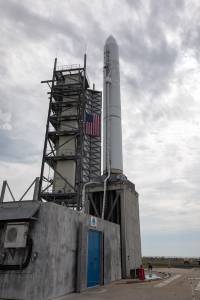Since January, more than 1 million Virginians have filed initial jobless claims, according to the Virginia Employment Commission. More than 32,000 Virginians filed initial jobless claims last week, according to a VEC statement released Thursday.
The week before last, Virginia had the fourth-highest increase in initial jobless claims in the nation, but that was not the case last week, in which the number went down slightly, indicated by U.S. Department of Labor (DOL) statistics released Thursday.
In Virginia, 372,070 people remained unemployed last week — a decrease of 6,537 from the previous week. People receiving unemployment benefits through the VEC must file weekly unemployment claims in order to continue receiving benefits.
The regions of the state that have been most impacted continue to be Northern Virginia, Richmond and Hampton Roads.
Below are the top 10 localities, listed by number of initial unemployment claims, for the week ending July 11:
- Fairfax County, 2,425
- Norfolk, 2,205
- Virginia Beach, 1,746
- Richmond, 1,727
- Prince William County, 1,256
- Newport News, 1,193
- Portsmouth, 1,173
- Chesapeake, 1,130
- Henrico County, 973
- Hampton, 869
“We are starting to see more warning signs that the Virginia economy is starting to slow as COVID-19 cases continue to climb in the commonwealth, especially in the Hampton Roads region,” Robert McNab, director of Old Dominion University’s Dragas Center for Economic Analysis and Policy, said in a statement. “Not only is Virginia facing a public health crisis; the end of extended unemployment benefits under the CARES Act will reduce incomes, harm consumption, and increase foreclosures and evictions.
“We estimate that these benefits likely exceed $200 million a week in direct payments and add at least $300 million a week to economic activity in the commonwealth.”
More than 41,000 individuals who had exhausted regular unemployment insurance were contacted the week before last by the VEC regarding eligibility for the Pandemic Emergency Unemployment Compensation (PEUC), which provides up to an additional 13 weeks of regular or traditional unemployment insurance benefits to those who have exhausted their eligibility. More individuals are being contacted each week, VEC officials said Thursday.
The VEC on July 2 launched an application portal for Virginians to access the PEUC program, which is provided by the federal Coronavirus Aid, Relief, and Economic Security Act. Payments are retroactive dating back to the week ending April 4. To be eligible, applicants must have exhausted all benefits from their regular unemployment insurance benefits.
As of July 14, the VEC has since paid out $16 million in PEUC benefits to more than 18,000 people. The program is available through the week ending Dec. 26. Approximately 60,000 applications have been flagged with eligibility issues thus far. VEC officials remind applicants that not everyone is eligible to receive benefits, according to eligibility requirements. The VEC is targeting 10,000 decisions per week regarding applications.
PEUC benefits are taxable, as are regular unemployment insurance benefits and federal pandemic unemployment compensation, according to the VEC.
Nationwide, 1.3 million people filed initial claims for unemployment last week, bringing the total of unemployed Americans to more than 51.3 million in the wake of the pandemic-related economic crisis, according to U.S. Department of Labor (DOL) statistics released Thursday.
“This is the 17th straight week where initial claims were above 1 million, which is nearly double the level observed in the worst week during the Great Recession,” Dominique Johnson, research associate at the Dragas Center, said in a statement. “As the pandemic continues, the decline in initial claims in early June has stalled as initial claims have hovered around 2 million for the last seven weeks.”
States with the largest increases in initial claims for the week that ended July 4 were Texas, New Jersey, Maryland, Louisiana and New York, while the largest decreases were seen in Indiana, Florida, California, Georgia and Oklahoma.
U.S. claims were down by 10,000 from the week before. For the week ending June 27, 48 states reported that nearly 14.28 million people are claiming federal Pandemic Unemployment Assistance, which provides temporary benefits for people who are not eligible for regular or traditional unemployment insurance.
The seasonally adjusted insured unemployment rate was 11.9% for the week that ended July 4, a decrease of 0.3% from the previous week.
The states and U.S. territories with the highest insured unemployment rates for the week ending June 27 were Puerto Rico, Nevada, Hawaii, New York, Louisiana, California, Massachusetts, Connecticut, Georgia and Rhode Island.
The VEC is hosting a statewide virtual hiring event on July 28. Employers may contact Robert Walker, VEC veteran outreach coordinator, for details on registering for the event.

Subscribe to Virginia Business.
Get our daily e-newsletter.




